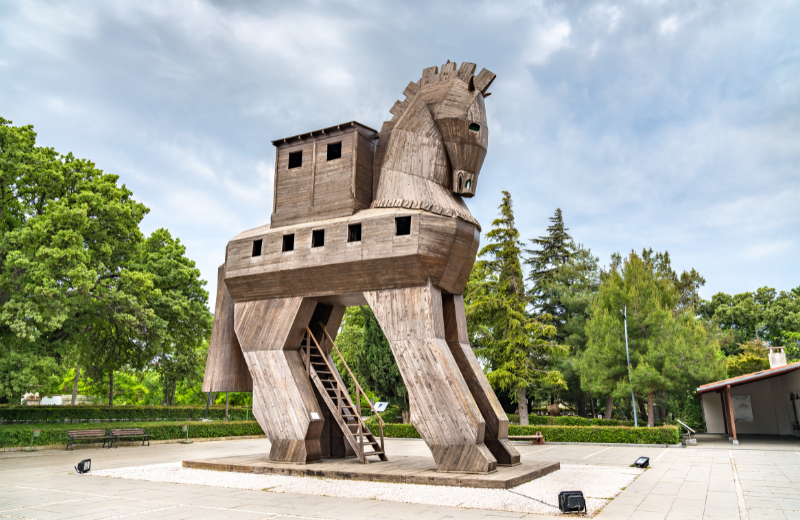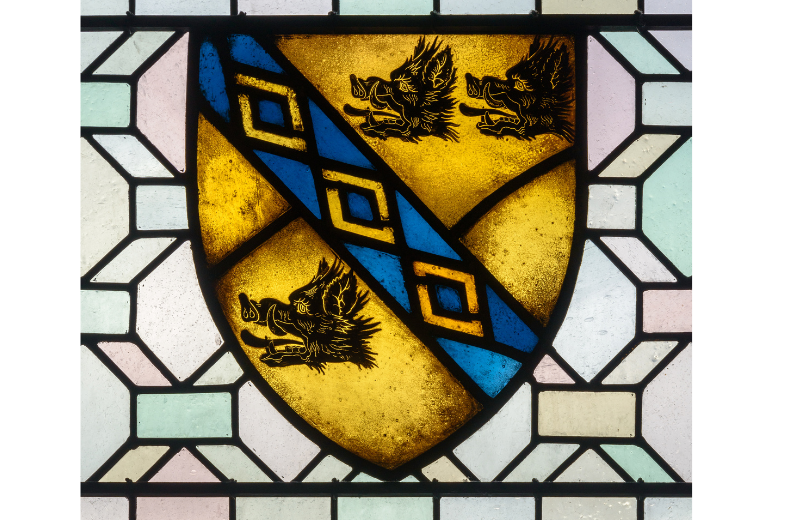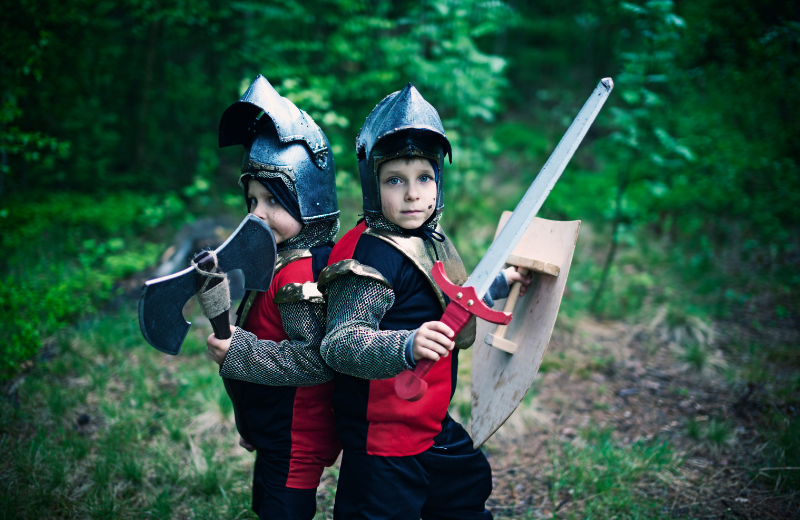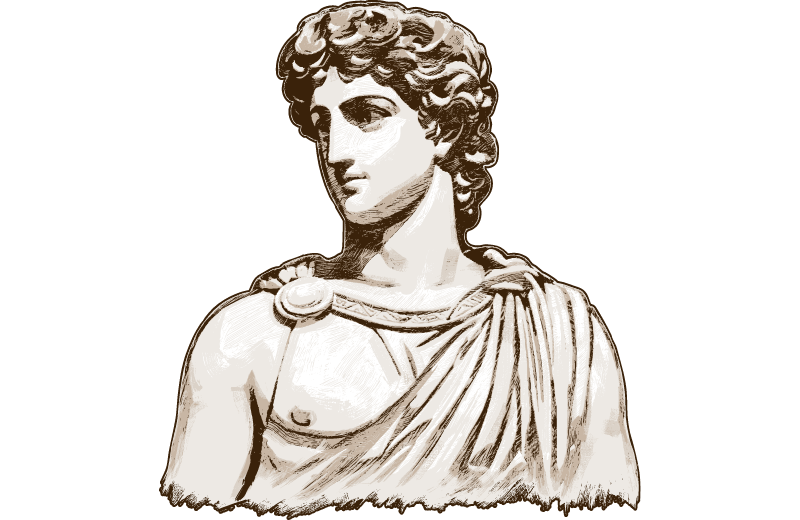Greek mythology is filled with captivating stories of heroes and gods, each with their unique adventures and lessons. Among these legendary figures is Ajax the Great, a hero known for his immense strength, bravery, and tragic fate. Whether you're a student of mythology, a fan of epic tales, or simply curious about ancient legends, the story of Ajax offers rich themes and valuable insights. Let's delve into the life, myths, and legacy of Ajax the Great, son of Telamon, and explore the timeless lessons his story holds.
Jump to:
Recommended for you!
Best SellersWho is Ajax the Great?
Ajax the Great, also known as Ajax the Greater, was a prominent figure in Greek mythology. He was the son of Telamon, the king of Salamis, and a formidable warrior who played a significant role in the Trojan War. Known for his towering stature and unmatched bravery, Ajax was one of the most respected Greek heroes, second only to Achilles in prowess on the battlefield.
Ajax's story is primarily recounted in Homer's epic, the Iliad, where he is depicted as a fierce and honourable warrior. Unlike many of his peers, Ajax was a man of few words, preferring action over rhetoric. His unyielding nature and sense of duty made him a key player in the Greeks' efforts against Troy.
Ajax’s Myths and Legends

Ajax the Great, a figure of immense strength and honour, has his story deeply intertwined with the events of the Trojan War. His tales are filled with heroism, rivalry, and tragic ends, offering rich narratives that capture the essence of ancient Greek values and beliefs.
Ajax at Troy
Ajax's most notable contributions came during the Trojan War. He fought bravely alongside other Greek heroes such as Achilles, Odysseus, and Agamemnon, demonstrating unmatched courage and dedication. One of his most famous feats was rescuing Achilles' body from the battlefield, ensuring it did not fall into Trojan hands after the great hero's death. This act reflected Ajax's loyalty and his significant role among the Greek forces, cementing his reputation as one of their foremost warriors.
The Fight for Achilles' Armour
Following Achilles' death, a contest was held to determine who would inherit his magnificent armour, a symbol of unmatched heroism and strength. Ajax expected to receive the honour, given his significant contributions and close relationship with Achilles. His unwavering bravery and numerous exploits on the battlefield seemed to make him the rightful heir. However, the armour was awarded to Odysseus, whose clever oratory and strategic mind swayed the decision in his favour. This outcome sparked intense rivalry and resentment between the two heroes, highlighting the complexities of honour and recognition in Greek mythology.
Ajax's Madness and Tragic End
Unable to bear the perceived injustice of losing Achilles' armour to Odysseus, Ajax fell into a deep rage and despair. In his madness, he slaughtered a herd of cattle, mistaking them for his enemies. This tragic act of misplaced violence was a manifestation of his psychological turmoil. Upon regaining his senses and realising what he had done, Ajax was overcome with shame and took his own life. His death is a reminder of the destructive power of pride and honour in Greek mythology, showcasing the devastating effects of overwhelming emotions and the rigid codes of heroism that defined his era.
Ajax’s Powers and Abilities
Ajax the Great's powers reflect his unparalleled strength and warrior spirit. His physical prowess and the virtues he embodied made him one of the most respected figures in Greek mythology.
Strength and Combat Skills
Ajax was known for his extraordinary physical strength and combat skills. His prowess in battle was unmatched, and he wielded a massive shield that protected him and his comrades. Unlike some heroes who relied on cunning or divine assistance, Ajax's power came from his sheer might and warrior spirit.
Symbol of the Indomitable Warrior
Ajax's unyielding nature and unwavering sense of duty symbolised the ideal warrior. He embodied the virtues of courage, loyalty, and honour, even in the face of insurmountable odds. These qualities made him a revered figure in Greek mythology and a model of heroism.
Symbols Associated with Ajax

Ajax's story is rich with symbols that reflect his strength, bravery, and tragic fate. Here are a few key symbols associated with him:
- The Shield: Ajax's large shield is one of his most recognisable symbols. It represented his strength and ability to protect his fellow soldiers. The shield was so enormous that it was said to be as big as a tower, providing both physical and symbolic protection.
- The Sword: The sword of Ajax, with which he ultimately took his own life, symbolises the tragic nature of his story. It serves as a reminder of the fine line between honour and pride, and the devastating consequences of unchecked emotions.
- The Armour: Though he did not inherit Achilles' armour, the contest for it remains a significant part of Ajax's legend. The armour symbolises the ultimate recognition of a warrior's prowess and the bitter rivalry that such honours can incite.
- The Boar: In some stories, Ajax's connection to the Calydonian Boar Hunt reflects his participation in heroic quests and his role as a quintessential Greek hero.
Themes and Lessons

Ajax the Great's story offers numerous themes and lessons that reflect the values and beliefs of ancient Greek culture. Through his life and actions, we can learn about the complexities of human nature and the moral teachings that have endured through the ages.
Honour and Pride
Ajax's story highlights the ancient Greek values of honour and pride. His downfall serves as a cautionary tale about the dangers of excessive pride and the importance of humility. Despite his great achievements, Ajax's inability to accept the loss of Achilles' armour led to his tragic end.
The Human Condition
Ajax's struggle with anger, despair, and redemption reflects the broader human condition. His story resonates with the universal themes of ambition, jealousy, and the quest for recognition. Through Ajax, we see the complexities of human emotions and the consequences they can bring.
The Role of Fate
In Greek mythology, fate often plays a role in the lives of heroes. Ajax's destiny was shaped by forces beyond his control, reminding us of the power of fate and the inevitability of certain outcomes. His story highlights the Greek belief in the predetermined nature of life and the gods' influence on human affairs.
The Consequences of Rivalry
The intense rivalry between Ajax and Odysseus for Achilles' armour serves as a lesson in the destructive potential of jealousy and competition. This rivalry not only led to Ajax's downfall but also illustrated how personal vendettas and the quest for glory can overshadow the greater good.
Loyalty and Brotherhood
Ajax's actions during the Trojan War, particularly his efforts to protect and honour his fellow warriors, highlight the themes of loyalty and brotherhood. His strong bonds with other Greek heroes and his dedication to their cause demonstrate the importance of camaraderie and mutual support in overcoming challenges.
The Tragic Hero
Ajax embodies the archetype of the tragic hero, a figure whose strengths are also their greatest weaknesses. His story teaches us about the dual nature of human qualities, where attributes like bravery and honour can lead to both greatness and downfall. This duality is a central theme in many Greek myths, offering a nuanced perspective on heroism and virtue.
Ajax's Relationships and Family Tree
The relationships Ajax had with his family and fellow heroes were central to his story and helped shape his legacy. These connections highlight the bonds of loyalty, rivalry, and kinship that defined his life and actions.
- The Relationship Between Telamon and Ajax: Ajax's father, Telamon, was a significant figure in his life. Telamon was a legendary hero himself, having participated in the Argonauts' expedition and the Calydonian Boar Hunt. The bond between father and son was strong, and Ajax inherited his father's warrior spirit and sense of honour. Telamon's influence was instrumental in shaping Ajax into the formidable warrior he became.
- Ajax and Teucer: Ajax had a half-brother, Teucer, who was also a distinguished archer and warrior. Despite their different mothers, Ajax and Teucer shared a close relationship and fought together during the Trojan War. Teucer deeply mourned Ajax's death and honoured his brother's memory by establishing a new Salamis on the island of Cyprus. This act of remembrance shows the deep fraternal bond between them.
- Ajax and Odysseus: The rivalry between Ajax and Odysseus is one of the most famous aspects of his story. Their competition for Achilles' armour highlighted their contrasting personalities: Ajax's straightforward bravery versus Odysseus's cunning intelligence. This rivalry ultimately led to Ajax's downfall and served as an example of the Greek heroes' complex relationships.
- Ajax and Achilles: While not family by blood, Ajax and Achilles shared a strong bond of camaraderie and mutual respect. Ajax's actions to recover Achilles' body after his death were a testament to their close relationship. This bond also heightened Ajax's expectation to inherit Achilles' armour, intensifying his feelings of betrayal when it was awarded to Odysseus.
- Ajax and Tecmessa: Tecmessa was Ajax's concubine and the mother of his son, Eurysaces. Their relationship adds a personal dimension to Ajax's story, showing a softer side of the great warrior. Tecmessa's mourning of Ajax's death and her concern for their son's future highlight the familial and emotional ties that grounded Ajax's life outside the battlefield.
- Ajax's Son, Eurysaces: Eurysaces, the son of Ajax and Tecmessa, played a role in continuing Ajax's legacy. His name, meaning "broad-shielded," reflects his father's martial prowess. Eurysaces's fate and upbringing after Ajax's death are a testament to the ongoing impact of Ajax's life and the continuation of his lineage.
The Legacy of Ajax the Great

Ajax the Great's story has transcended time, influencing various aspects of culture and inspiring countless interpretations. His legacy is a testament to the enduring power of myth and the timeless themes his life embodies.
Cultural Impact
Ajax the Great has left a lasting legacy in literature, art, and culture. His story has been depicted in countless works of art, from ancient pottery to Renaissance paintings. The themes of his life continue to resonate with audiences, highlighting the timeless nature of Greek mythology.
Modern Interpretations
In modern times, Ajax's story has been adapted in various forms, including plays, novels, and films. His character remains a symbol of strength, honour, and the tragic consequences of human flaws. These adaptations ensure that Ajax's legacy endures, reminding us of the enduring power of mythological stories.
The Two Ajaxes in the Iliad
While Ajax the Great is a central figure in the Iliad, there is also another hero named Ajax, known as Ajax the Lesser. Ajax the Lesser, son of Oileus, was a swift and skilled warrior, but he lacked the nobility and honour of Ajax the Great. His actions during and after the Trojan War were less commendable, and he met a tragic fate due to his hubris and disrespect for the gods.
Recommended for you!
Best SellersFrequently Asked Questions About Ajax the Great
Did Ajax the Great have a wife?
Ajax the Great did not have a wife in the traditional sense, but he had a concubine named Tecmessa, with whom he had a son, Eurysaces.
Who won the fight between Heracles and Ajax?
There is no significant mythological account of a fight between Heracles and Ajax the Great. Heracles and Ajax's father, Telamon, were friends and comrades.
How did Odysseus beat Ajax?
Odysseus "beat" Ajax by winning the contest for Achilles' armour through his persuasive speech and strategic mind, which convinced the Greek leaders to award him the honour instead of Ajax.
What god is Ajax based on?
Ajax is not based on a specific god but is a mortal hero. He is, however, often associated with the Greek god Ares due to his warrior prowess.
Why did Ajax go insane?
Ajax went insane due to a combination of his immense pride and the perceived injustice of losing Achilles' armour to Odysseus. His rage and despair led him to slaughter livestock, mistaking them for his enemies, which ultimately drove him to take his own life.
Why is Ajax called Ajax?
Ajax's name comes from the Greek word "Aias," which is believed to be of pre-Greek origin. It was a common name among Greek heroes, symbolising strength and bravery.
How do you pronounce Ajax in Greek?
In Greek, Ajax is pronounced "Aias" (Άιας).
Was Ajax a demigod?
Ajax was not a demigod. He was a mortal hero, although his father, Telamon, was a close companion of Heracles, a demigod.
What does the name Ajax mean?
The meaning of the name Ajax is uncertain, but it is believed to be of pre-Greek origin, possibly meaning "mourner" or "earth."
Study Greek Mythology for £29
If you’re fascinated by Ajax and the stories within Greek mythology, why not deepen your knowledge with our Greek Mythology Diploma Course at Centre of Excellence? This fascinating course covers the myths, gods, heroes, and symbols of ancient Greece, and for a limited time, you can enrol for just £29!













